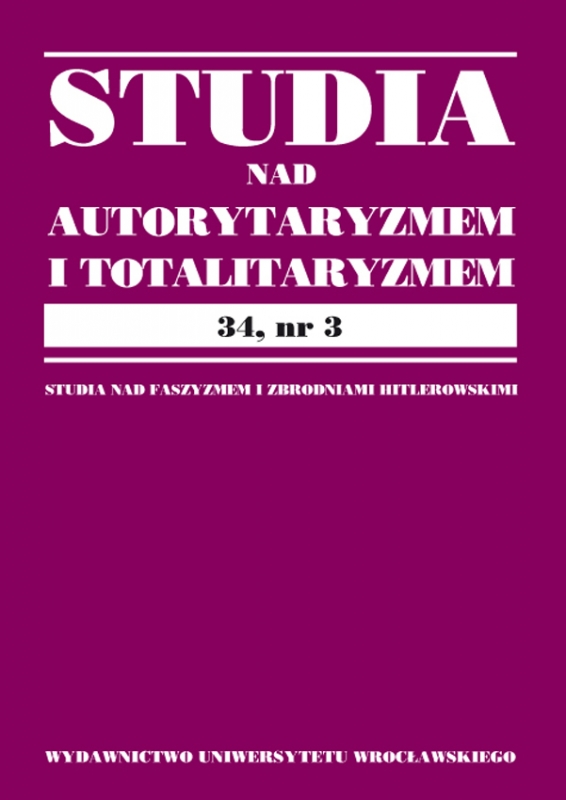

Artykuły

“RESPONSIBILITY BEFORE GOD AND HISTORY FOR THE STATE’S DESTINY RESTS WITH HIM”. THE 1935 CONSTITUTION OF POLISH REPUBLIC IN A DECISIONIST PERSPECTIVE
The paper is devoted to the reconstruction of the doctrinal-and-legal foundations of decisionism, as proposed by Professor Carl Schmitt, and to the assessment of the role played by the Office of the President of the Polish Republic, as determined by the 1935 Constitution of the Polish Republic, from the standpoint of the aforementioned theory. In the first part of the paper, the author characterizes the Office of the President of Polish Republic in accordance with the provisions of “the April Constitution”. This normative act was probably the most original and innovative Polish Constitution, particularly with respect to the part devoted to the position of the Head of State. The rules of the act equipped President of the Polish Republic with a number of prerogatives which gave him a tremendous amount of power, unknown either previously disregarding abnormal circumstances regarding state’s functioning, i.e. during armed insurgency or afterwards to the Polish constitutional tradition. Involuntarily, the shape and the character of these rules, particularly of the adopted formula concerning President’s responsibility “before God and history”, appear associatively connected with the decisionist theory as proposed by Professor Carl Schmitt. In the second part of the paper the author analyzes the theory of decisionism, starting with the ecclesiastic sources of this conception and finishing with circumstances in which the theory was put forward by Schmitt as a constitutional proposal, meaning at the time of the German Reich’s disorganization and of the emergence of the opportunity for revolutionary parties of totalitarian profile to seize political power. The third part of the text provides a comparative analysis of the decisionist theory and of the “Polish concept of authoritarianism,” resulting in the discovery of certain similarities and coincidences between the intellectual foundations of Schmitt’s theory and the work of Polish constitutionalists, including common inspirations and axiological presuppositions of these two political-and-legal projects. This comparison permits the author to conclude that there was a significant concurrence between the concepts of the German jurist and of Polish lawmaker.